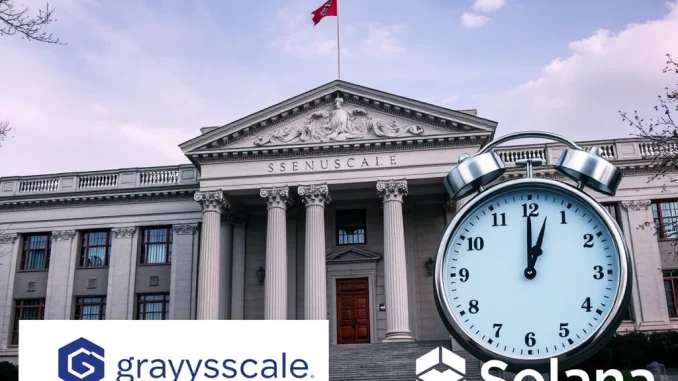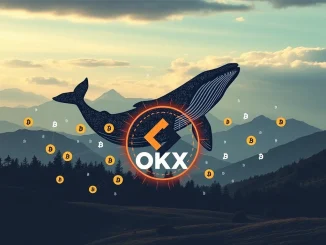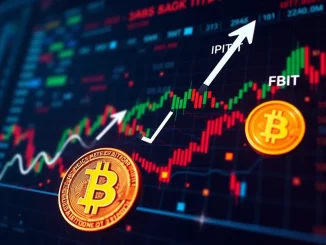
Crypto investors are closely watching regulatory developments, and a recent announcement has added another layer of anticipation. The U.S. Securities and Exchange Commission (SEC) has reportedly delayed its decision regarding the proposed Grayscale Spot Solana ETF. This news, initially reported by Unfolded on X, highlights the ongoing regulatory scrutiny surrounding cryptocurrency investment products in the United States.
What Does This SEC Delay Signify?
An SEC delay on an investment product application is not uncommon, especially in the volatile and evolving cryptocurrency space. For the proposed Grayscale Spot Solana ETF, this postponement means the regulatory body needs more time to review the filing, gather information, and consider the potential implications of approving such a product.
Here’s a breakdown of what a delay typically entails:
- Extended Review Period: The SEC uses the extra time to conduct a more thorough examination of the proposal, including market structure, potential for manipulation, and investor protection measures.
- Request for Public Comment: Delays often precede or coincide with requests for public feedback, allowing interested parties to voice their opinions and provide data.
- Alignment with Other Filings: The SEC might be considering this filing alongside other similar Crypto ETF applications, aiming for a consistent regulatory approach.
- Market Uncertainty: Delays can contribute to market uncertainty surrounding the specific asset (Solana) and the broader prospect of crypto-based ETFs.
Why is a Spot Solana ETF Significant?
The interest in a Spot Solana ETF mirrors the excitement seen with the approval of spot Bitcoin ETFs earlier this year. A spot ETF holds the underlying asset directly – in this case, Solana – offering investors regulated exposure to the cryptocurrency’s price movements without needing to buy and store SOL tokens themselves. This accessibility is a key reason why these products are popular with traditional finance investors.
A Grayscale Spot Solana ETF, if approved, would represent a significant step for the Solana ecosystem, potentially bringing in substantial institutional and retail capital. Grayscale, known for its large crypto trusts, has been active in converting its products and launching new ones in the ETF format.
Comparing Spot Solana ETF Prospects to Bitcoin ETFs
The path to a Spot Solana ETF approval is likely to face similar, if not greater, hurdles compared to spot Bitcoin ETFs. While Bitcoin is often viewed differently by regulators due to its longer history and market dominance, other cryptocurrencies like Solana face additional questions regarding market size, liquidity, and potential classification as securities.
Key differences and similarities in the approval process:
| Factor | Spot Bitcoin ETF | Spot Solana ETF |
|---|---|---|
| Regulatory Precedent | Approved (after years of delays) | No precedent for non-Bitcoin/Ethereum spot ETFs |
| Market Maturity/Size | Largest crypto market cap | Significant, but smaller and younger than Bitcoin |
| Regulatory Scrutiny | High, focused on market manipulation | Likely high, potentially including security classification questions |
| Grayscale’s Role | Converted GBTC to spot ETF | Proposing a new spot ETF product |
| Likelihood of Delay | Historically common | Very likely, as seen with the recent news |
The SEC’s cautious approach suggests they are evaluating each asset class individually, considering the unique characteristics and risks associated with Solana.
What Comes Next After the SEC Delay?
Following an SEC delay, the next steps typically involve:
- Further Review: The SEC staff continues their examination of the filing.
- Potential Information Requests: Grayscale may receive further questions or requests for additional data from the SEC.
- New Deadline: A new deadline for a decision will be set, though further delays are possible within the statutory limits.
- Market Reaction: The market may react to the news, reflecting investor sentiment regarding the likelihood and timing of approval.
For those following the prospect of a Crypto ETF based on Solana, patience is key. The regulatory process is often lengthy and subject to various factors, including the SEC’s overall stance on digital assets and potential legislative developments.
Navigating the Uncertainty: Implications for Investors
While the delay on the Spot Solana ETF is not an outright rejection, it signals that approval is not imminent. Investors interested in Solana should be aware that direct investment in SOL tokens remains the primary method of gaining exposure for now. The prospect of an ETF introduces a regulated, potentially easier access point, but its availability depends entirely on regulatory approval.
This situation underscores the regulatory challenges faced by the broader crypto market. Each new asset class seeking ETF approval must undergo rigorous scrutiny, building upon the precedents set by Bitcoin and potentially Ethereum ETFs.
Conclusion: The Waiting Game Continues for the Grayscale Spot Solana ETF
The news of the SEC delay on the proposed Grayscale Spot Solana ETF confirms that the path for crypto-specific investment products beyond Bitcoin and potentially Ethereum remains a cautious one for U.S. regulators. While disappointing for those hoping for swift approval, it is a standard part of the regulatory process. The focus now shifts to the SEC’s next steps and the new deadline. The potential for a Spot Solana ETF remains alive, but the waiting game continues, reminding the market of the significant regulatory hurdles that must be cleared for broader Crypto ETF adoption.



